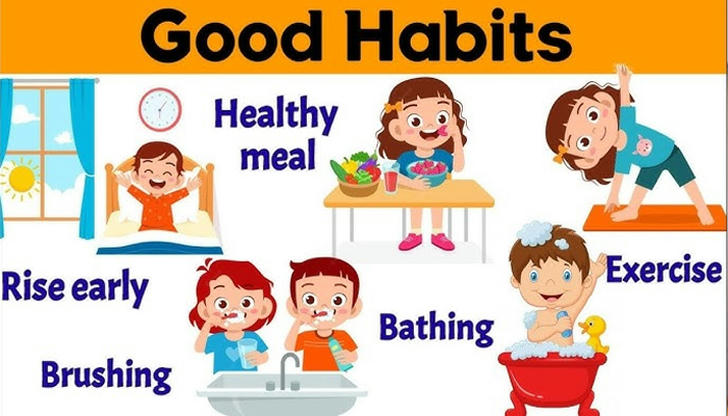Healthy Habits That Stick: Realistic Strategies for Building a Healthier Lifestyle

Building a healthier lifestyle can seem overwhelming, especially with all the conflicting information and quick-fix solutions out there. However, creating lasting, healthy habits doesn’t have to be difficult or complicated. With the right mindset and practical strategies, you can make sustainable changes that will improve your overall health and well-being. This article offers realistic approaches to help you build habits that stick and create a healthier lifestyle.
I. Introduction
Adopting a healthier lifestyle is essential for long-term well-being. Whether it’s eating more nutritious foods, exercising regularly, or getting better sleep, healthy habits can drastically improve your physical and mental health. However, many people struggle with starting or maintaining these habits. Common barriers such as lack of time, motivation, and consistency often lead to frustration and eventual abandonment of health goals.
The purpose of this article is to provide practical, realistic strategies for building habits that will stick. Instead of aiming for perfection or trying to overhaul your entire life overnight, these methods focus on gradual, sustainable changes that fit into your real life.
II. Understanding the Foundation of Healthy Habits
Before diving into strategies, it’s important to understand why some habits stick while others don’t.
The Role of Consistency
Consistency is the key to building habits. Habits are formed through repetition. The more frequently you engage in a certain behavior, the more ingrained it becomes in your routine. It’s not about perfection but about showing up day after day, even when motivation is low.
The Importance of Small, Incremental Changes
Attempting to make drastic changes all at once often leads to burnout. Starting small and making incremental changes allows you to ease into new habits without overwhelming yourself. Gradual changes are not only more manageable but also lead to longer-lasting results.
Mindset Shift
A key factor in building lasting habits is shifting your mindset. Instead of focusing on short-term goals or quick fixes, focus on creating a sustainable lifestyle. Viewing health as a lifelong journey rather than a destination helps you stay motivated and committed over time.

III. Practical Strategies for Building Healthy Habits
1. Start with Why
Understanding your motivation is crucial when building healthy habits. Why do you want to live a healthier life? Do you want to have more energy, prevent disease, or feel more confident? By identifying your personal reasons for adopting healthier habits, you’ll be more likely to stay committed when challenges arise.
- Actionable tip: Write down your “why” and keep it visible as a daily reminder of your purpose.
2. Set SMART Goals
Specific, Measurable, Achievable, Relevant, and Time-bound (SMART) goals provide clarity and direction. Setting clear goals allows you to break down large objectives into manageable steps, making them more attainable. It’s important to track your progress so that you can celebrate small victories and adjust your approach if necessary.
- Actionable tip: Instead of aiming to "exercise more," set a SMART goal like, "I will walk for 30 minutes every morning at 7 a.m. for the next two weeks."
3. Make Gradual Changes
Instead of overhauling your entire lifestyle, start with small, manageable changes. If you try to make too many changes at once, you risk feeling overwhelmed and quitting altogether. Instead, focus on one habit at a time. For example, begin by replacing sugary snacks with healthier options or committing to exercising for just 10 minutes a day.
- Actionable tip: Pick one habit to focus on, and stick with it for at least two weeks before introducing another new habit.
4. Focus on Habits, Not Results
One of the biggest reasons people fail to maintain healthy habits is that they focus too much on results. Healthy habits take time, and it’s essential to embrace the process rather than obsessing over outcomes. Whether it’s weight loss, strength gains, or improved mental clarity, progress will come with consistent effort.
- Actionable tip: Celebrate small milestones such as completing a week of workouts or choosing a healthier meal. The satisfaction from these small wins will reinforce your commitment to the habit.
5. Create a Support System
Building habits is much easier when you have support. Find a friend, family member, or group to help keep you accountable. Whether it’s a workout buddy, a meal-prep partner, or a group chat to share progress, having someone to support you boosts motivation and makes you feel less isolated.
- Actionable tip: Set regular check-ins with an accountability partner. Share your goals, progress, and struggles to stay motivated.
IV. Overcoming Obstacles

1. Dealing with Setbacks
Setbacks are a natural part of any journey. You may miss a workout, indulge in an unhealthy meal, or fail to stick to your plan one week. Instead of letting setbacks derail your progress, use them as learning opportunities. Understand that mistakes are part of the process and don’t define your ability to succeed.
- Actionable tip: Reframe failure as feedback. Reflect on what went wrong, learn from it, and move forward without guilt.
2. Time Management Tips for Busy Lives
Life is busy, and finding time for healthy habits can be challenging. However, with proper time management, you can incorporate these habits into your daily routine. Instead of trying to find extra time, focus on making your current routine more efficient. This could mean meal prepping for the week, scheduling workouts, or prioritizing sleep.
- Actionable tip: Plan your week ahead. Set specific times for exercise, meal prep, and relaxation, and stick to your schedule as best as possible.
V. Building Long-Term Sustainable Habits
1. Consistency Over Perfection
One of the most important lessons in building habits is that consistency matters more than perfection. Don’t get discouraged if you miss a day or don’t follow your routine exactly as planned. It’s the overall trend of consistency that will produce results over time.
- Actionable tip: If you miss a day of your routine, don’t give up. Simply get back to it the next day and remind yourself that progress is made over the long term, not in a single day.
2. Gradual Habit Expansion
Once a habit becomes ingrained in your routine, you can start adding more habits on top of it. For instance, if you’ve successfully made exercise a regular part of your life, you can add new challenges, such as increasing the intensity or trying new types of workouts. This gradual layering helps prevent boredom and keeps you engaged.
- Actionable tip: After a month of walking regularly, try adding strength training or yoga to your routine for added variety.
3. Keeping It Fresh
Even the most dedicated people can become bored with their routines. To prevent burnout, regularly assess your habits and try new approaches. Switch up your workouts, experiment with new healthy recipes, or change your environment to keep things exciting.
- Actionable tip: Once a month, try a new activity or change your routine slightly. This could be as simple as cooking a new healthy dish or going on a hike instead of a walk.
VI. Conclusion
Building a healthier lifestyle doesn’t require drastic changes or unrealistic expectations. The key to success is focusing on small, consistent improvements, setting realistic goals, and being patient with yourself. By starting with simple habits and gradually building on them, you can create lasting change. Remember, healthy habits that stick are not about perfection; they’re about persistence. Stay consistent, celebrate your progress, and keep going. Your healthier, happier life is within reach.
